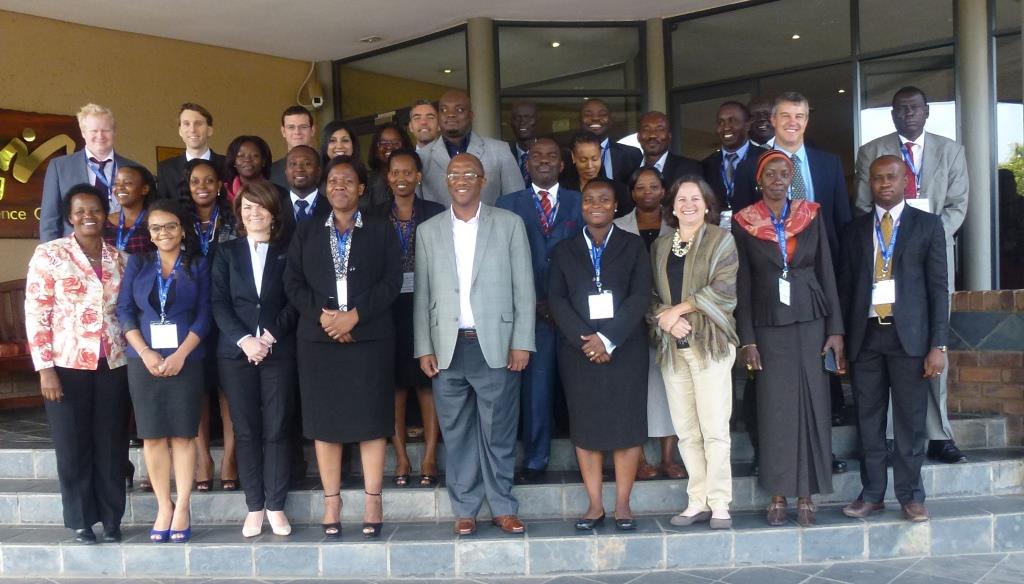It is undeniable that the socio-economic and environmental impacts of mining, oil and gas production, otherwise known as extractive industries, are being felt around the world. In recent years, the exponential growth of this industry and its impact on public resources, have left SAIs facing challenges related to the technical complexity of the extractive industries, a lack of knowledge of business processes, the governance set-up and associated risks, the need for capacity building and retention of specialised staff and, mandate limitations. To offset these challenges, a new INTOSAI Working Group on Extractive Industries was established following the 2013 INTOSAI congress.
SAI South Africa, as an active member of this working group, and also a participant in an INTOSAI Development Initiative’s (IDI) joint project with AFROSAI-E to conduct a Cooperative Pilot Audit on Extractive Industries in seven African Countries, hosted an audit review meeting in November 2014 where representatives from the seven participating countries where each SAI presented their audit outcomes based on the agreed audit plan. The scope of the cooperative audit is focused on the oil and natural gas industry, which in recent years has become one of Africa’s foremost attractions for international investments.
The session also enabled the subject matter experts from the IDI, AFROSAI-E, SAI Brazil and SAI Uganda to provide feedback on the draft reports and make recommendations for improvements.
In line with the principles contained in the draft ISSAI 5800: Guide for Cooperative Audit Programs between Supreme Audit Institutions, each of the participating SAIs conduct audits in their own selected environments. However, the process and outcomes are shared within the cooperative group in order to learn from each other’s experiences. Using an effective peer-review strategy, the seven teams had the opportunity to review each other’s draft reports and gain valuable insights into the experiences of others while also providing and receiving feedback. Time was also spent finalising the key findings, major challenges, lessons learned and work plans to submit the final country reports in the parliaments of the respective countries. This information will now be used by IDI and AFROSAI-E to consolidate into the final combined report.
Through participation in this cooperative audit, the team gained extensive knowledge on the concept of local content specific to the oil and gas industry and; on the cooperative audit methodology and performance audit methodology as facilitated by AFROSAI -E and IDI in audit of extractive industries.
In his opening address, Kimi Makwetu, the Auditor-General of South Africa and Chair of the INTOSAI Capacity Building Committee, stressed the importance of using opportunities presented through this type of initiative, to build mutual capacity in this specialised area of public sector auditing and to support each other in the process. This is a great example of supreme audit institutions demonstrating that the exchange of experience benefits all.
Please note that ISSAI 5800 as a tool for preparing, implementing and following up on bilateral and multilateral audits is being finalised for presentation to the INTOSAI Capacity Building Committee at its annual meeting in the second week of September 2015. For reference: Exposure draft ISSAI-5800
by
Annerie Pretorius
_________________________________________________________________________________________
Manager • Institutional Cooperation • Auditor-General of South Africa

